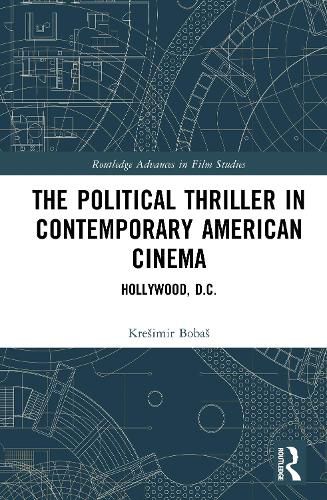Readings Newsletter
Become a Readings Member to make your shopping experience even easier.
Sign in or sign up for free!
You’re not far away from qualifying for FREE standard shipping within Australia
You’ve qualified for FREE standard shipping within Australia
The cart is loading…






The Political Thriller in Contemporary American Cinema examines how the political thriller films (de)construct and reflect the sociopolitical realities of the second half of the twentieth, as well as the first two decades of the twenty-first century.
The book highlights the convergence between the cinematic narrative, its underlying political discourse, as well as the audience's perception of it. Through a critical lens, it analyzes how contemporary films utilize characterization, narrative, and suspense to examine topics of governance, malfeasance, and power dynamics. By referring to films such as The Manchurian Candidate, Zero Dark Thirty, and Snowden, this book traces the evolution of the political thriller, questioning how its narratives mirror issues such as covert operations, erosion of democracy, and governmental surveillance. In turn, the conspiratorial and underlying paranoid nature of these films serves as a reflection of societal anxieties, as well as a metaphorization of the levers of power in America's modern-day democracy.
Consequently, this book serves as a contribution to the growing body of research on political cinema, and the way it simultaneously reflects and shapes political life through its role as a sociocultural phenomenon. In doing so, it invites readers to further delve into the exploration of these films, which represent complex commentaries on the structures of corporations, media, and military that are predominant in contemporary American society and cinema.
$9.00 standard shipping within Australia
FREE standard shipping within Australia for orders over $100.00
Express & International shipping calculated at checkout
The Political Thriller in Contemporary American Cinema examines how the political thriller films (de)construct and reflect the sociopolitical realities of the second half of the twentieth, as well as the first two decades of the twenty-first century.
The book highlights the convergence between the cinematic narrative, its underlying political discourse, as well as the audience's perception of it. Through a critical lens, it analyzes how contemporary films utilize characterization, narrative, and suspense to examine topics of governance, malfeasance, and power dynamics. By referring to films such as The Manchurian Candidate, Zero Dark Thirty, and Snowden, this book traces the evolution of the political thriller, questioning how its narratives mirror issues such as covert operations, erosion of democracy, and governmental surveillance. In turn, the conspiratorial and underlying paranoid nature of these films serves as a reflection of societal anxieties, as well as a metaphorization of the levers of power in America's modern-day democracy.
Consequently, this book serves as a contribution to the growing body of research on political cinema, and the way it simultaneously reflects and shapes political life through its role as a sociocultural phenomenon. In doing so, it invites readers to further delve into the exploration of these films, which represent complex commentaries on the structures of corporations, media, and military that are predominant in contemporary American society and cinema.